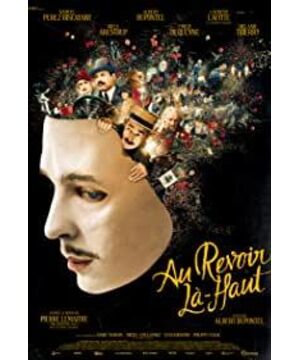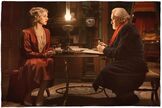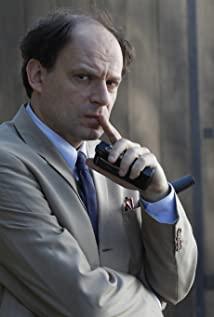"The war is over and I'm not sure". Incorporating the anti-war theme into dark humor and French style, this "gorgeous" post-war film has the taste of a literary masterpiece. With some careful polishing, the pain and artistic sense will be even better.
The film is based on the French literary award of the same name. Time Magazine reviews the original screenplay: strong emotion, sheer clarity, and genius originality. The film retains the clarity and originality of the literary creation, adding visual provocation, but at the same time weakening the poetic genius and the situational unity of humor in the language of the film.
The whole film depicts a post-war "stage" that is completely unrecognizable: the living are forgotten, the souls of the dead have nowhere to go, and the memories of people who have nowhere to put are all hypocritical patriotic scams. When the great revenge is completed, only each of them can die to express their powerless confrontation with evil, and we will see each other in heaven. In the anti-war theme, the crime with the sense of artistic declaration is presented absurdly with the plot of the popular novel. This original method is unique and rare. The movie is well preserved.
The provocative visual success is largely due to the characterization and detailing of the male lead. The emotions under the talent are real and rich, but unfortunately not nuanced (the imbalance of character close-up and humorous style is the main reason). The emotions of the 38 masks, the paintings of tribute, the metaphor of the signature, and the gorgeousness of the leap are all good spaces for exertion. The beauty is not in the twists and turns of the story, but in the core characters themselves. The richness of the story is preserved for the sake of ironic integrity, and the branch lines are basically arranged, but at the expense of the deep understanding of the characters and the complete realization of the logic.
The lens language of this film jumps between the stage frame and the parallel universe that is truly reproduced. Which one is the main line? The unity of the language of the lens is lost, and the unity of the aesthetics is also lost, which leads to the weakening of the poetic quality of literature. Perhaps, maintaining the unity like "The Grand Budapest Hotel", whether in terms of visual aesthetics or the style of the camera language, will make the trauma more painful.
In the end, Nahuel's eyes are worthy of Pisces, the movie is 8 points, no additional.
For more content, you can pay attention to the WeChat public account: search: willyi_
View more about See You Up There reviews











